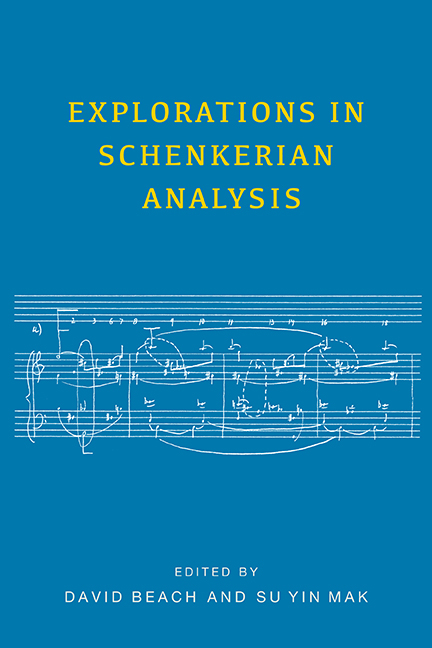Appendix: An Interview with Edward Laufer
Published online by Cambridge University Press: 28 June 2018
Summary
In the summer of 2003, as part of research for a talk (later an article) on Schenkerian pedagogy, I spent two days interviewing Edward Laufer at his house in Glen Haven, near Halifax, Nova Scotia, Canada. The interviews were recorded, and later were partially transcribed by David Huff. This appendix presents excerpts minimally edited for readability. They convey, I feel, a strong sense of Laufer's analytical emphases, pedagogical preferences, keen intelligence, predilection for precision, aversion to pomposity, and wry sense of humor. They also occasionally demonstrate how, under a somewhat deceptive appearance of meekness and shyness, he could express very firm opinions indeed.
1. Early Musical Training
SS: Would you say something about your early musical training, before you got into Schenkerian analysis?
EL: I grew up in Halifax and, like so many young aspiring musicians, I learned to play an instrument, which was in my case the piano. But I was also very interested in composition. I studied for one year at Dalhousie University in Halifax, and then in Toronto. Would you like me to mention some of my teachers there?
SS: Yes.
EL: Well, I studied with Oscar Morawetz, a very well known Canadian composer, and with John Weinzweig for a year or two, also quite well known. One of my great delights at that time was going to rehearsals of the Toronto Symphony Orchestra. They did some very interesting programs—I used to go to their rehearsals regularly with scores and listen to the rehearsals. There were many outstanding conductors who came to conduct the orchestra; for example, Sir Thomas Beecham and Sir Malcolm Sargent, whom I remember very well. In those early years in Toronto—I guess it would have been the late fifties—the Mahler symphonies were receiving their first performances in Toronto under a conductor named Heinz Unger, and I very enthusiastically went to all of those.
- Type
- Chapter
- Information
- Explorations in Schenkerian Analysis , pp. 328 - 348Publisher: Boydell & BrewerPrint publication year: 2016



